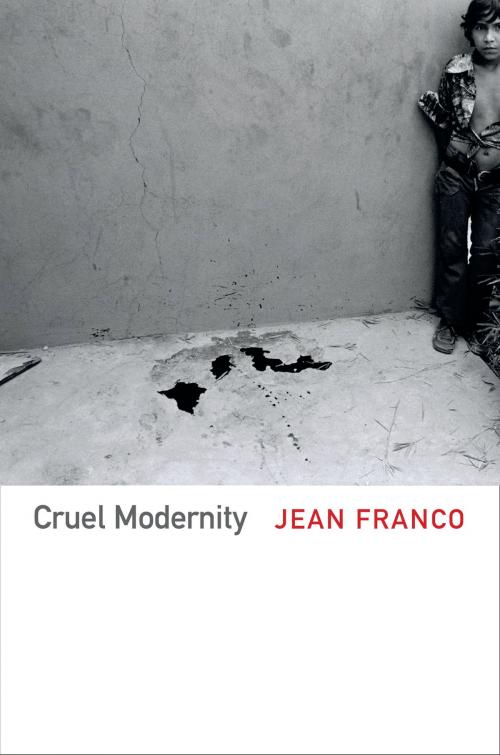Cruel Modernity
Nonfiction, History, Americas, Latin America, Social & Cultural Studies, Social Science, Gender Studies, Feminism & Feminist Theory| Author: | Jean Franco | ISBN: | 9780822378907 |
| Publisher: | Duke University Press | Publication: | May 29, 2013 |
| Imprint: | Duke University Press Books | Language: | English |
| Author: | Jean Franco |
| ISBN: | 9780822378907 |
| Publisher: | Duke University Press |
| Publication: | May 29, 2013 |
| Imprint: | Duke University Press Books |
| Language: | English |
In Cruel Modernity, Jean Franco examines the conditions under which extreme cruelty became the instrument of armies, governments, rebels, and rogue groups in Latin America. She seeks to understand how extreme cruelty came to be practiced in many parts of the continent over the last eighty years and how its causes differ from the conditions that brought about the Holocaust, which is generally the atrocity against which the horror of others is measured. In Latin America, torturers and the perpetrators of atrocity were not only trained in cruelty but often provided their own rationales for engaging in it. When "draining the sea" to eliminate the support for rebel groups gave license to eliminate entire families, the rape, torture, and slaughter of women dramatized festering misogyny and long-standing racial discrimination accounted for high death tolls in Peru and Guatemala. In the drug wars, cruelty has become routine as tortured bodies serve as messages directed to rival gangs.
Franco draws on human-rights documents, memoirs, testimonials, novels, and films, as well as photographs and art works, to explore not only cruel acts but the discriminatory thinking that made them possible, their long-term effects, the precariousness of memory, and the pathos of survival.
In Cruel Modernity, Jean Franco examines the conditions under which extreme cruelty became the instrument of armies, governments, rebels, and rogue groups in Latin America. She seeks to understand how extreme cruelty came to be practiced in many parts of the continent over the last eighty years and how its causes differ from the conditions that brought about the Holocaust, which is generally the atrocity against which the horror of others is measured. In Latin America, torturers and the perpetrators of atrocity were not only trained in cruelty but often provided their own rationales for engaging in it. When "draining the sea" to eliminate the support for rebel groups gave license to eliminate entire families, the rape, torture, and slaughter of women dramatized festering misogyny and long-standing racial discrimination accounted for high death tolls in Peru and Guatemala. In the drug wars, cruelty has become routine as tortured bodies serve as messages directed to rival gangs.
Franco draws on human-rights documents, memoirs, testimonials, novels, and films, as well as photographs and art works, to explore not only cruel acts but the discriminatory thinking that made them possible, their long-term effects, the precariousness of memory, and the pathos of survival.















